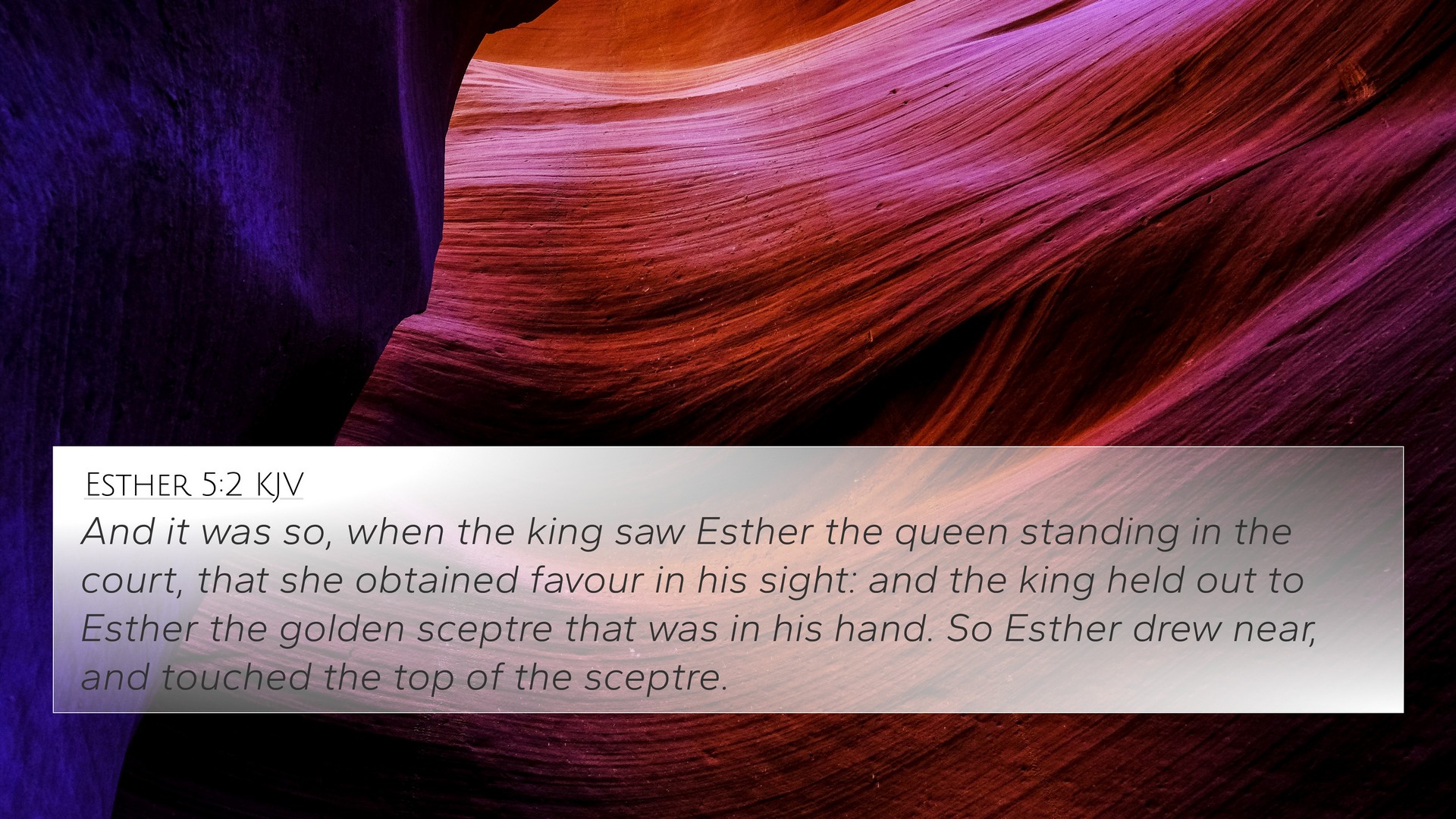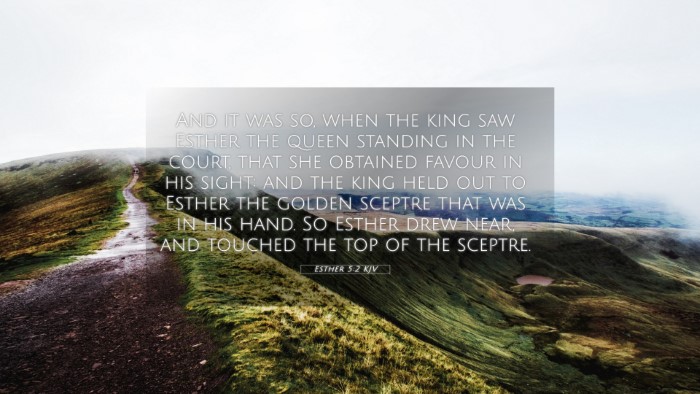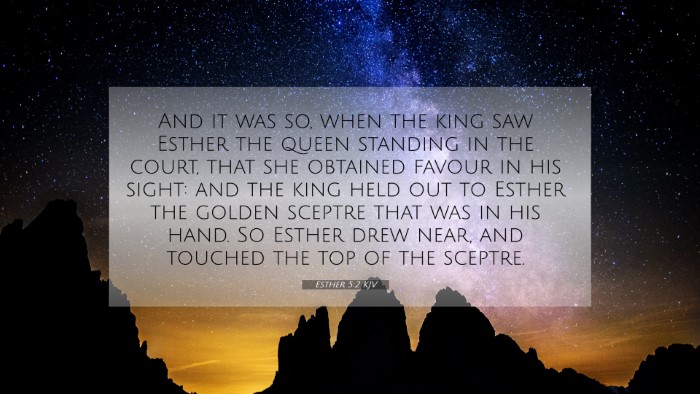Old Testament
Genesis Exodus Leviticus Numbers Deuteronomy Joshua Judges Ruth 1 Samuel 2 Samuel 1 Kings 2 Kings 1 Chronicles 2 Chronicles Ezra Nehemiah Esther Job Psalms Proverbs Ecclesiastes Song of Solomon Isaiah Jeremiah Lamentations Ezekiel Daniel Hosea Joel Amos Obadiah Jonah Micah Nahum Habakkuk Zephaniah Haggai Zechariah MalachiEsther 5:2 Similar Verses
Esther 5:2 Cross References
And it was so, when the king saw Esther the queen standing in the court, that she obtained favour in his sight: and the king held out to Esther the golden sceptre that was in his hand. So Esther drew near, and touched the top of the sceptre.
Uncover the Rich Themes and Topics of This Bible Verse
Listed below are the Bible themes associated with Esther 5:2. We invite you to explore each theme to gain deeper insights into the Scriptures.
Esther 5:2 Cross Reference Verses
This section features a detailed cross-reference designed to enrich your understanding of the Scriptures. Below, you will find carefully selected verses that echo the themes and teachings related to Esther 5:2 KJV. Click on any image to explore detailed analyses of related Bible verses and uncover deeper theological insights.
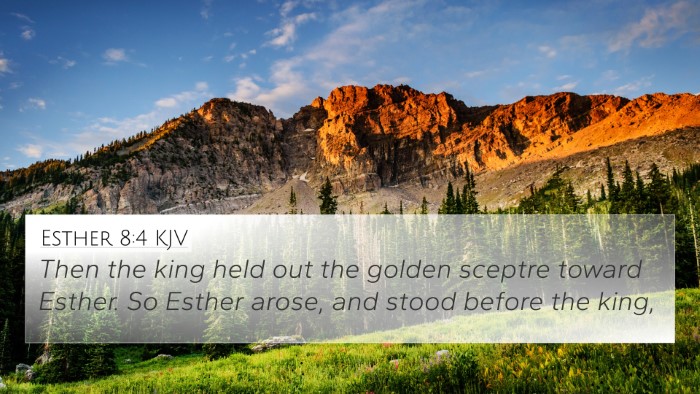
Esther 8:4 (KJV) »
Then the king held out the golden sceptre toward Esther. So Esther arose, and stood before the king,
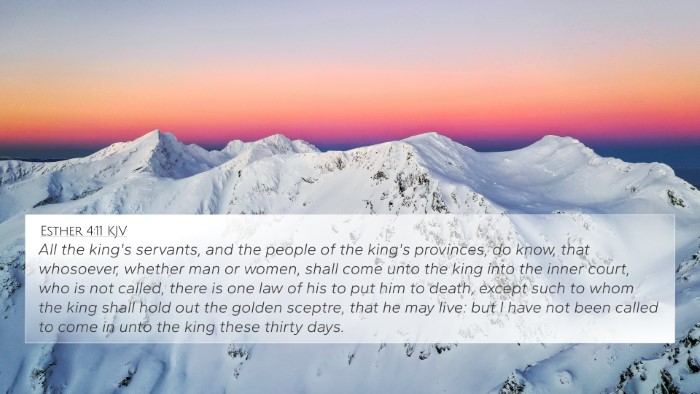
Esther 4:11 (KJV) »
All the king's servants, and the people of the king's provinces, do know, that whosoever, whether man or women, shall come unto the king into the inner court, who is not called, there is one law of his to put him to death, except such to whom the king shall hold out the golden sceptre, that he may live: but I have not been called to come in unto the king these thirty days.
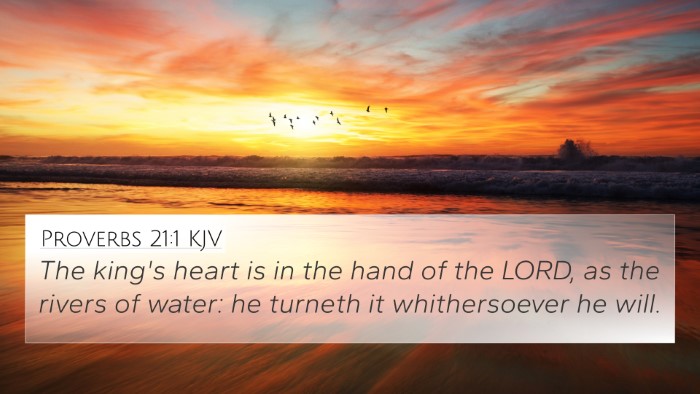
Proverbs 21:1 (KJV) »
The king's heart is in the hand of the LORD, as the rivers of water: he turneth it whithersoever he will.
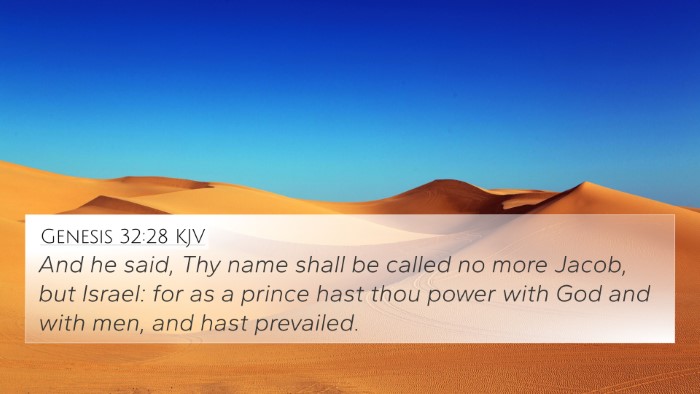
Genesis 32:28 (KJV) »
And he said, Thy name shall be called no more Jacob, but Israel: for as a prince hast thou power with God and with men, and hast prevailed.
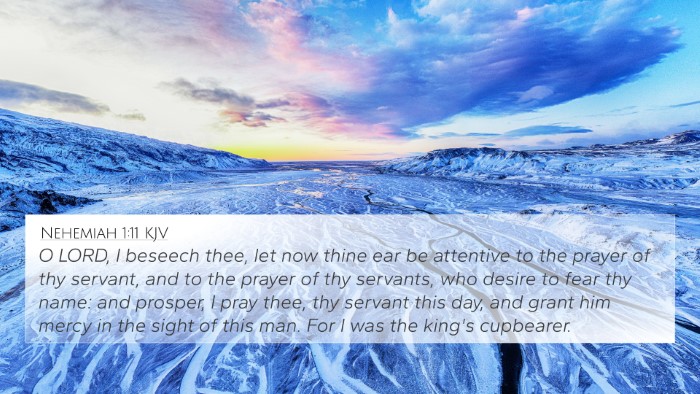
Nehemiah 1:11 (KJV) »
O LORD, I beseech thee, let now thine ear be attentive to the prayer of thy servant, and to the prayer of thy servants, who desire to fear thy name: and prosper, I pray thee, thy servant this day, and grant him mercy in the sight of this man. For I was the king's cupbearer.
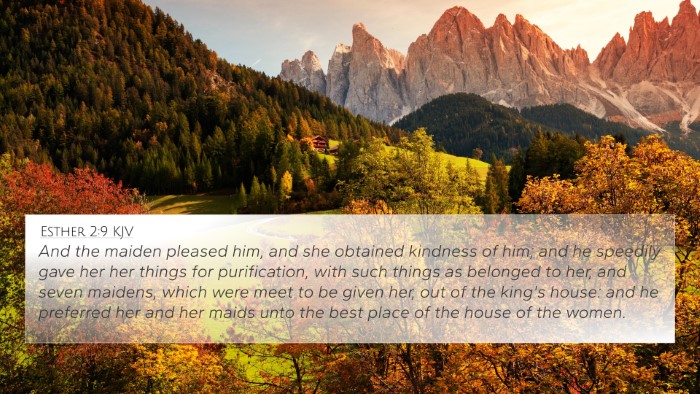
Esther 2:9 (KJV) »
And the maiden pleased him, and she obtained kindness of him; and he speedily gave her her things for purification, with such things as belonged to her, and seven maidens, which were meet to be given her, out of the king's house: and he preferred her and her maids unto the best place of the house of the women.
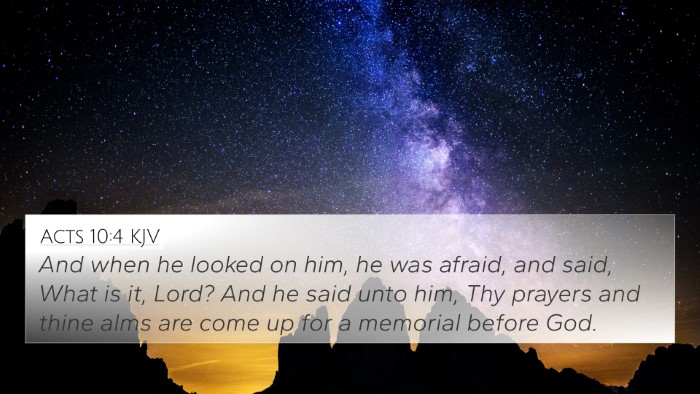
Acts 10:4 (KJV) »
And when he looked on him, he was afraid, and said, What is it, Lord? And he said unto him, Thy prayers and thine alms are come up for a memorial before God.
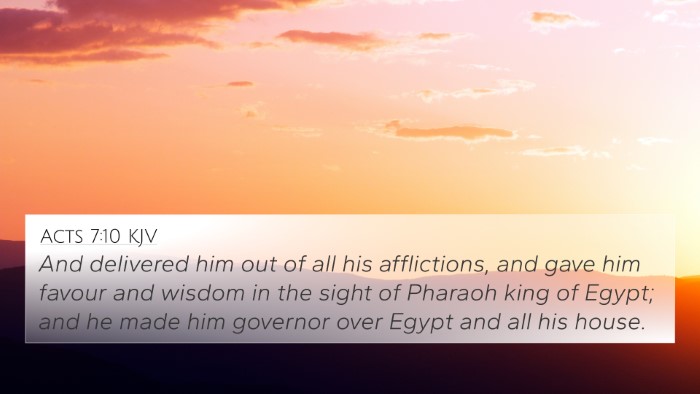
Acts 7:10 (KJV) »
And delivered him out of all his afflictions, and gave him favour and wisdom in the sight of Pharaoh king of Egypt; and he made him governor over Egypt and all his house.
Esther 5:2 Verse Analysis and Similar Verses
Understanding Esther 5:2
The verse Esther 5:2 is pivotal in the narrative of Esther, highlighting themes of courage, divine timing, and the unfolding of God's providential plan. In this verse, Esther approaches King Ahasuerus, and upon gaining his favor, she invites him and Haman to a banquet she has prepared. This moment marks a significant turning point in the story of the Jewish people within the Persian Empire.
Commentary Insights
The commentaries by Matthew Henry, Albert Barnes, and Adam Clarke provide valuable insights into this verse, elucidating its meaning and emphasizing its theological implications.
Matthew Henry's Commentary
Henry notes that Esther's approach to the king was accompanied by great risk, as entering the king's presence uninvited could lead to death (see Esther 4:11). However, her faith and readiness illustrate a strong dependence on God's providence. Henry emphasizes the importance of timing and preparation in Esther's plan to save her people.
Albert Barnes's Commentary
Barnes focuses on the political dynamics at play, describing how Esther's cunning and wisdom in the face of potential danger are evident. He suggests that her invitation to the king for a banquet reflects strategic thinking and a desire to build rapport with him. This approach serves to highlight how the intersection of personal relationships and political maneuvering can influence God's larger plans.
Adam Clarke's Commentary
Clarke remarks on the significance of Esther's actions as acts of faith. He emphasizes that her beautiful demeanor and poise when she requests the king's presence at her banquet signifies her trust in God’s plan. Clarke also ties Esther’s courage back to her Jewish identity, suggesting that her willingness to risk her life reflects her commitment to her people.
Thematic Connections
Esther 5:2 connects to numerous themes within the Biblical text. The act of approaching authority figures to advocate for one’s people resonates throughout scripture. Below are cross-references that draw connections between this verse and others:
- Esther 4:11 - Highlights the risks associated with approaching the king.
- Esther 4:14 - God's providential placement of Esther for such a time as this.
- 1 Samuel 16:1 - God’s choice of David also involved bold action.
- Daniel 2:48 - Daniel’s favor with King Nebuchadnezzar through wisdom.
- Proverbs 21:1 - The king’s heart is in God’s hands, similar to Esther’s situation.
- Acts 5:29 - The principle of obeying God rather than men, applicable to Esther’s faith.
- Romans 8:28 - Assurance that God works all things for good, reminiscent of Esther's narrative.
- Hebrews 11:6 - Faith as a crucial element of the believer's life, illustrated through Esther.
- 1 Peter 3:14 - Encouragement to endure suffering for righteousness, reflective of Esther’s plight.
- Esther 7:3 - The revelation of Esther’s identity and objective, emphasizing the significance of her banquet.
Inter-Biblical Dialogue
Esther 5:2 creates a rich tapestry for inter-Biblical dialogue, demonstrating how different narratives engage with similar themes of divine intervention, courage, and leadership. The courage Esther displays parallels other Biblical figures who act boldly under pressure. By studying these thematic Bible verse connections, we can appreciate the consistent message of faith and resilience throughout scripture.
Conclusion
In summary, Esther 5:2 serves as an important moment in the narrative that underscores themes of divine providence and courageous action. Cross-referencing this verse illuminates its connections to various scriptures, enriching our understanding of Esther's role and the overarching narrative of the Jewish people during perilous times. For those seeking to delve deeper, employing cross-reference tools and engaging in Bible concordance studies can further reveal the interconnectedness of Biblical themes.
